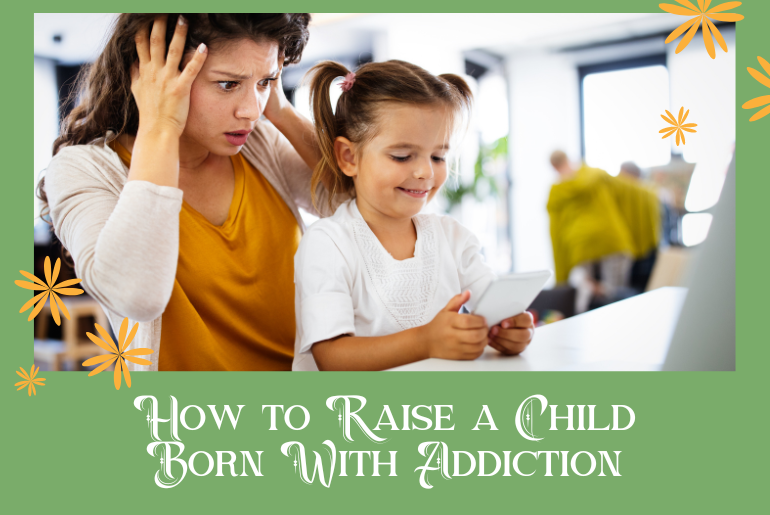Many forms of parenting have been developed, documented, practiced, and evolved over the years. Through careful analysis, experts have recognized a few unique styles that have formed the basis for much of the advice given to parents in recent times. These styles are shaped by a combination of factors such as the parent’s values, beliefs, personality, cultural background, and personal experiences.
Parenting styles refer to the distinct attitudes, behaviors, and practices parents exhibit while raising their children. Parenting styles are crucial in shaping a child’s development and well-being. How parents interact with their children, set rules, provide support, and offer discipline has a lasting impact on the child’s self-esteem, relationships, academic performance, and emotional stability. We will discuss all parenting styles to guide you as a parent.
Overview of Different Parenting Styles
Several widely recognized parenting styles include authoritarian, permissive, uninvolved, and authoritative. Each style has unique features, strengths, and weaknesses, and the choice of parenting style can have far-reaching consequences for the child’s future.

1. Authoritarian Parenting Style
Strict rules, high expectations, and a dictatorial approach to discipline characterize the authoritarian parenting style. Parents who adopt this style believe that obedience and respect are the most important qualities a child should possess. They enforce rules rigorously, and children are expected to follow them without question. Authoritarian parents are less likely to encourage open communication and may use punishment and criticism as their primary means of discipline.
Pros and Cons of Authoritarian Parenting Style
The pros include high levels of structure, discipline, and order in the household, which can lead to children being well-behaved and successful in their academics and future careers. Children raised in this style may also have a strong sense of respect and obedience, which can be advantageous in certain social and professional settings.
The cons include low self-esteem, independence, and creativity in children, a lack of open communication, and a tendency to suppress emotions. Children raised in an authoritarian environment may struggle to form healthy relationships and have difficulty expressing their thoughts and feelings.
Examples of Authoritarian Parenting in Real Life
An example of an authoritarian parenting style in action could be a parent who enforces strict bedtimes, sets high expectations for academic performance, and punishes their child for misbehavior without engaging in discussion or negotiation. Another could be a parent who forbids their child from participating in certain activities or hobbies, regardless of their interest or passion.
2. Permissive Parenting Style
A lack of structure, rules, and discipline characterizes a permissive parenting style. Parents who adopt this style are often described as indulgent and responsive and prioritize their children’s happiness above all else. They tend to avoid setting limits and may give in to their children’s demands and whims, often allowing them to make their own decisions and control their lives.
Pros and Cons of Permissive Parenting Style
Pros of the permissive parenting style include high self-esteem, creativity, and independence in children and a close and affectionate relationship between parents and children. Children raised in this style may also be more confident and self-reliant and develop strong communication skills.
Cons of a permissive parenting style include a lack of structure and discipline, leading to children being impulsive, entitled, and lacking self-control. Children raised in a permissive environment may struggle to follow the rules, make responsible decisions, and have difficulty dealing with disappointment and frustration.
Examples of Permissive Parenting in Real Life
An example of a permissive parenting style in action could be a parent who never says no to their child, allows them to eat junk food, and does not enforce bedtimes or homework routines. Another example could be a parent who buys their child expensive gifts to make up for not spending enough time with them or allows their child to do whatever they want, even if it is potentially harmful.
3. Uninvolved Parenting Style
An uninvolved parenting style involves a lack of emotional engagement and involvement in the child’s life. Parents who adopt this style may be distant, neglectful, or disinterested and may provide minimal support, guidance, or discipline. Children raised in this style often have a low level of supervision and may have little structure or stability in their lives.
Pros and Cons of Uninvolved Parenting Style
Pros of the uninvolved parenting style are few, as the style is generally considered harmful to children’s development. However, in some cases, children raised in this style may develop independence and resourcefulness, as they are often left to fend for themselves.
Cons of an uninvolved parenting style include low self-esteem, attachment, and trust in children, as well as a lack of guidance, support, and structure. Children raised in this style may struggle with emotional regulation and relationships and engage in risky behaviors.
Examples of Uninvolved Parenting in Real Life
An example of an uninvolved parenting style in action could be a parent who provides minimal emotional support, spends little time with their child, and does not enforce rules or provide discipline. Another example could be a parent who is physically present but emotionally detached, who provides basic necessities but does not participate in their child’s life or activities.
4. Authoritative Parenting Style
A balance of warmth, support, and structure characterizes the authoritative parenting style. Parents who adopt this style set clear expectations and boundaries but are also responsive to their children’s needs and are willing to negotiate and listen. They use discipline and guidance to help their children learn and grow and prioritize open communication and mutual respect in their relationships.
Pros and Cons of Authoritative Parenting Style
Pros of the authoritative parenting style include high self-esteem, independence, and resilience in children, as well as strong parent-child relationships and good communication. Children raised in this style may also be well-behaved, academically successful, and able to make responsible decisions.
The cons of an authoritative parenting style are few, as it is considered the most effective. However, in some cases, it may require a significant investment of time and effort from parents and may be challenging to implement consistently.
Examples of Authoritative Parenting in Real Life
A good example of an authoritative parenting style in action could be a parent who sets clear rules and expectations but is also responsive to their child’s needs and emotions. This parent may use discipline and guidance to help their child learn and grow and may engage in open and honest communication with their child. Another example could be a parent who sets realistic expectations for their child’s behavior and academic performance but provides emotional support, encouragement, and praise.
The Importance of Choosing the Right Parenting Style
As you consider different approaches, keep in mind that it’s not about being perfect, it’s about finding a balance that works for your family. Here are some benefits of choosing the right parenting style:

A. Child Development
Parenting style plays a significant role in shaping a child’s personality, behavior, and emotional development. The right parenting style can foster positive growth and development, while the wrong style can lead to negative outcomes.
B. Mental Health
How a parent raises their child can have a lasting impact on their mental health and well-being. A supportive and nurturing parenting style can help a child develop strong self-esteem and resilience, while an uninvolved or overly strict style can lead to anxiety, depression, or other mental health issues.
C. Relationships
Parenting style can also affect a child’s relationships with others, including their peers, family members, and future romantic partners. Children raised in a supportive and nurturing environment are more likely to have healthy relationships, while those raised in an authoritarian or uninvolved style may struggle with trust and communication.
D. Academic Success
A child’s academic success can also be influenced by parenting style. Children raised in an authoritative style, for example, are more likely to have a positive attitude towards school, set and achieve academic goals, and be motivated to learn.
E. Future Parenting
A child’s parenting style is often influenced by the style they experienced growing up. By choosing the right parenting style, parents can help their children develop the skills and attitudes necessary to become successful, effective parents themselves.
F. Overall Happiness
The right parenting style can ultimately contribute to a child’s happiness and well-being. Children raised in supportive and nurturing environments are more likely to be confident, resilient, and satisfied with their lives.
Bottom Line
All parenting styles are helpful, but most parents do not need to choose just one. They can adopt a style from each category and still maintain a family environment. Remember that there is no perfect parenting style; all you need is to be there for your child and always be ready to help them in every way possible.
REFERENCES:
https://www.frontiersin.org/articles/10.3389/fpsyg.2018.02187/full
https://www.ncbi.nlm.nih.gov/pmc/articles/PMC6323136/

I am Christiana Williams, a multitasking sociologist and proud mama of three. With a passion for exploring the complexities of modern parenting, I bring my unique perspective and expertise to the table. As a seasoned parent and seasoned sociologist, I have a wealth of knowledge and experience to share. From the ups and downs of raising a family to the latest research on child development, I am on a mission to help other parents navigate the joys and challenges of parenthood. Get ready to be inspired, informed, and entertained as I share my insights and adventures as a parent.




